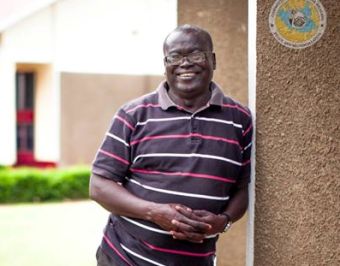Participants hail Yei reconciliation workshop
October 26, 2014 (JUBA) – Participants taking part in a 28-day reconciliation workshop in South Sudan’s Central Equatoria state have expressed optimism that the country’s wounds can be healed.

“I personally came here loaded with anxieties and fears as to how I would keep the Dinkas and Nuers, and other tribes, together for four weeks without anything exploding,” secretary-general of the committee Rev. Bernard Suwa said in comments extended to Sudan Tribune.
“Now to me, this unity is something that we can really celebrate. It has given me hope that left alone, away from these political challenges that we are made to drink every day, South Sudanese can find a space to live together,” Suwa added.
South Sudan erupted in violence in mid-December last year following a power struggle within the country’s ruling party (SPLM).
The fighting has largely pitted members of president Salva Kiir’s Dinka tribe against rebel forces loyal to former vice-president Riek Machar, who is of Nuer ethnicity.
The Yei training is part of a three-year initiative formed by Kiir in April and headed by the Archbishop of the Episcopal Church, Daniel Deng Bul, which aims to promote national healing and reconciliation
The 80 trainees in Yei were drawn from all corners of South Sudan.
According to organisers, participants will be equipped with concrete skills and knowledge on facilitation, as well as on theories and approaches to reconciliation.
The workshop is being facilitated by South Africa’s Institute for Justice and Reconciliation (IJR).
Over the next three years, the committee aims to facilitate a nation-wide consultation process at a grassroots level.
The purpose will be to document the diverse narratives from communities to ensure that South Sudan’s future reconciliation is driven and shaped by the people’s experiences, knowledge and needs.
CNHPR’s planned consultation process is being held under the banner ‘A Step Together: Shared Journeys of Listening and Dialogue’.
Some 550 peace mobilisers will travel to various payams (districts) across South Sudan with the view to developing a people-driven agenda for national reconciliation.
Similar attempts by church leaders to reconcile feuding communities, such as in Jonglei state, have largely failed until now.
However, participants and organisers of the reconciliation workshop say the current approach being adopted is already bearing fruit.
“Peacebuilding is about understanding where we are, who we have lost, who are victims, women are victims … it is the people themselves who should decide, this is what we should do,” said Rev. John Chol Daau, an expert at the training.
“There is a contradiction between being a peacemaker and being someone who wants to receive the credit,” Dau noted.
There was also acknowledgement of the importance of engaging with all groups within society to promote a message of peace and unity.
“One of these key groups is the youth in our cattle camps, who need our support in addressing violence,” another trainee said.
During the workshop participants provided testimonies and have pledged to use what they have learnt when they return to their communities.
“This to me is very positive. I think we will have a lot of stories to tell when we go forward from here,” Suwa said.
It has been alleged that thousands civilians of Nuer origin were killed in Juba at the onset of the conflict.
Members of the Dinka tribe were also killed in Nuer areas, including one raid on a UN base in Akobo that left 30 people dead in December.
In April, the UN alleged that rebel fighters killed hundreds of people sheltering in a mosque and hospital after capturing Unity state capital Bentiu from government forces.
The violence has displaced more than 1.5 million people, with tens of thousands of internally displaced people seeking shelter at UN sites across the country since the violence broke out.
Human rights advocacy groups said the killings on both sides of the conflict is tantamount to war crimes, and the US government says the perpetuators must be held to account for meaningful peace and reconciliation to be achieved.
Both warring parties maintain they are committed to ensuring accountability for crimes committed by their forces, but are yet to make any arrests.
(ST)
